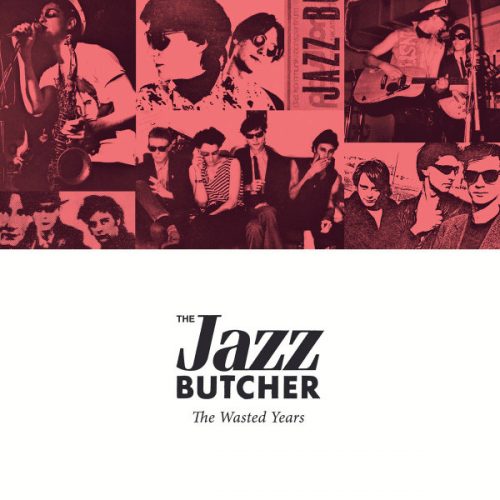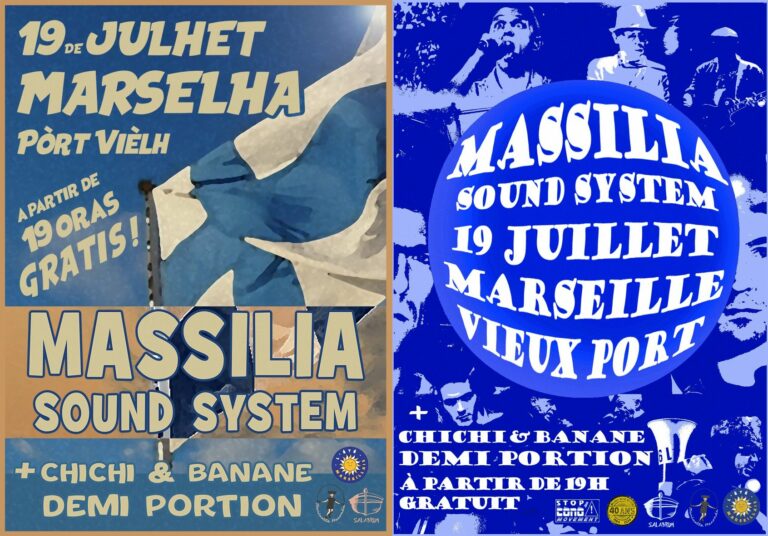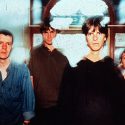A Oxford, il y a Supergrass, Radiohead, Ride. Et avant tout ce beau monde, il y avait Pat Fish. Avant de se faire connaître par les fans d’Oasis en signant sur Creation Records en 1988, Pat Fish était la tête de pont du label Glass Records. Avec le guitariste Max Eider, Fish fit des merveilles de 1983 à 1986 (ce qui ne veut pas dire qu’il n’en fit pas après). En 3 ans, Fish était comme un poisson dans l’eau avec sa guitare et écrivit une quarantaine de chansons rangées dans quatre albums (In Bath Of Bacon, A Scandal In Bohemia, Sex And Travel, Distressed Gentlefolk). The Wasted Years est donc le meilleur remède à la médiocrité ambiante !
Comment as-tu rencontré Dave Barker du label Glass Records ?
Pat Fish : En 1981, j’évoluais au sein du groupe Sonic Tonix. Nous avions auto-produit notre premier 45 tours et nous voulions le distribuer. Pour cela, nous avons dû appeler pas mal d’inconnus et nous leur avons demandé de l’aide. Quelqu’un d’Illuminated Records m’a dit d’aller de voir du coté de Dave Barker. Il venait de monter Glass Records, son propre label. Il a mis une de nos chansons sur la compilation The Wonderful World of Glass – Vol 1. Après la séparation des Tonix à la fin de 1981, je me suis installé à Northampton. Un peu par hasard, je l’ai mieux connu car il y avait quelques groupes à Northampton qui travaillaient avec lui. Même s’il habitait à Londres, il venait souvent à Northampton pour un concert ou une visite le temps d’un week-end. Lorsque j’ai commencé à faire de petites cassettes à la maison, je lui ai envoyé des chansons. Vers le milieu de 1982, nous avons évoqué le fait d’enregistrer un album.
La grande majorité de tes disques ont été enregistrés à Leamington Spa, Warwickshire dans les studios Woodbines. Pourquoi avoir choisi ces studios ? Quels sont tes meilleurs souvenirs ?
Au moment où nous sommes allés là-bas, Dave Barker utilisait les studios Woodbine depuis un moment. Il avait sorti deux disques qui avaient été enregistrés là-bas et nous aimions bien leur son. Le premier était l’album des Jacobites de Nikki Sudden et de Dave Kusworth. Le second était Slip the Rope un morceau de David J sur son album Crocodile Tears. Les enregistrements avaient un son fabuleux avec un spectre assez large qui reposait sur une base simple, honnête et acoustique. C’était le son de que j’espérais trouver. Leamington est à seulement une heure de route de Northampton, où David et moi avons vécu. C’était donc assez pratique. Au cours de la semaine de travail, nous étions à Leamington dans des chambres au-dessus d’un charmant petit restaurant géré par deux types charmants qui s’appelaient Eric et Julian. Lors de notre première nuit à Leamington, après la séance d’enregistrement, nous sommes rentrés dans le premier bar que nous avons trouvé. Il y avait pas mal de vapeur dans celui que nous avons trouvé. Il s’est avéré entièrement et exclusivement peuplé par les sikhs. Nous avons bu tous les jours. Lorsque nous avons fait Scandal in Bohemia, c’était au milieu de l’été. Quand nous n’enregistrions pas, nous jouions au football sur le parking du studio. C’était vraiment plutôt idyllique. En revanche, nous avons fait Sex and Travel pendant l’hiver, avec de la neige au sol. Le studio est devenu une petite retraite chaleureuse, l’atmosphère très intime. John Rivers, qui travaillait avec nous Woodbine avait une éthique de travail très forte et savait comment rendre les sessions de travail faciles.
Pourquoi avoir appelé ce coffret The Wasted Years ?
Eh bien, nous étions jeunes et nous avons expérimentés les tournées de rock. L’alcool à profusion et tout le reste. Évidement, nous nous sommes gaspillés.
Comment s’est passé le remastering de tes albums ?
Pour moi ce fut très facile car je n’y ai pas participé.
Pourquoi avoir travaillé avec Brian Pyle ?
Ce n’est pas notre choix, mais celui du label. Je pense qu’il l’utilise pour à peu près tout. Il a fait du bon boulot sur notre dernier album Last of the Gentleman Adventurers. Il n’y avait donc aucun problème pour qu’il retravaille avec nous.
Big Saturday est ma chanson préférée de l’album Sex And Travel. Quelle est l’histoire de celle-ci ?
En 1984, avant que le groupe ne m’occupe à plein temps, je travaillais régulièrement pour un avocat du coin. Je devais m’occuper des dossiers qui passaient devant les cours royales à Londres. Et ce qui me prenait beaucoup de prenait beaucoup de temps était les liquidations judiciaires qui se font ici via des pétitions des débiteurs. Et je coûtais moins cher qu’un vrai avocat.
Le service des faillites aux cours royales de justice était infâme à l’époque. C’est un service où les gens essaient de faire faire faillite aux autres. La façon dont les pétitions étaient faites était fastidieuse. Une faute de frappe, une petite erreur et ils pouvaient refuser simplement de publier la pétition, en envoyant les malheureux commis juridiques comme moi à leurs employeurs qui étaient en colère car le travail n’était pas terminé. L’ambiance du bureau des faillites était immonde. Les gens étaient le moins coopératifs possible et le plus gênants possible. Beaucoup d’entre eux semblaient prendre plaisir à envoyer des greffiers juridiques déçus, leurs requêtes rejetées. À un moment donné, le personnel a affiché une liste sur le mur du bureau : « Les dix meilleures excuses offertes par les commis juridiques », se moquant ouvertement de leurs … uh … clients avec des citations comme « Mais j’ai fait la route de Newcastle… »
Tout le monde redoutait l’endroit. Parce que je connaissais l’endroit et parce que je connaissais les gens du service, j’ai gagné pas mal de pétitions et j’ai obtenu de bons résultats. Mais je n’aimais pas la compagnie de ces gens. A une exception !
The Jazz Butcher – Big Saturday
C’était une magnifique journée de printemps de 1983, juste avant Pâques. Je me suis rendu au bureau des faillites avec une pétition. Je n’étais pas sûr que cela allait fonctionner. Je me suis retrouvé avec une belle jeune femme qui, bien que je ne l’avais jamais vue auparavant, ait déjà complètement absorbé la culture de l’endroit : languissante, non impressionnée, prenant son temps à faire son travail. Cela lui convenait vraiment. Je l’ai regardé, elle me fascinait. Je travaillais et je suis sorti pour la pause du midi. J’étais trop jeune et socialement incapable de faire une tentative d’approche. Mon dieu, elle était du bureau des faillites donc un être supérieur à moi. Je suis sorti prendre le soleil avec le souvenir précieux de sa glorieuse indifférence. Soudainement, les nuages ont obscurci le ciel et un vent sec s’est mis à souffler. Dans ma tête, je me suis dit : « Le temps est sombre mais le printemps est en route ». J’ai téléphoné à mon copain Rolo pour savoir ce qu’il faisait pendant ce week-end de Pâques. Il a dit qu’il serait occupé à faire un enregistrement pour un de ses nouveaux groupes. « Hé, King, j’espère que tu as un bon week-end. J’espère que tout se passe comme tu le souhaites ». Toute la soirée de samedi se rapporte également à Rolo et à certaines aventures que nous avons eu avec l’acide. Donc, certains couplets sont un petit hommage pour lui : il m’a beaucoup appris en matière de musique. Parfois, quand j’entends la chanson, il me semble que j’essaie de chanter un peu comme lui même si cela n’a pas été fait de manière volontaire. Au fur et à mesure que la chanson continue, vous pouvez entendre la clarté du temps. Le dernier couplet est bien sûr, ma vision dans le bureau des faillites. Tu vois, je ne l’ai pas oubliée.
De retour à Northampton, tout le week-end de Pâques a été très étrange et très productif à la fois. Je me souviens avoir écrit Big Saturday, Just Like Betty Page et I Need Meat ce week-end, et d’autres aussi, qui m’échappent maintenant. En résumé le week-end de Pâques 1983 fut génial.
J’ai passé une grande partie de Pâques en 1984 à essayer de sauver mon chat d’un immense arbre du parc. Mais je n’ai pas écrit une chanson à ce sujet.
C’était facile John A. Rivers ? Pourquoi l’avez-vous choisi ? Pour son travail avec Felt ?
Eh bien, j’ai déjà évoqué les disques qui nous ont donné envie de travailler avec John, mais bien sûr, nous connaissions bien les disques qu’il avait fait Felt et surtout il avait enregistré la fantastique chanson Ghost Town des Specials. Son studio était le plus beau que nous ayons jamais vu et il était très bien entretenu. John et moi avons eu nos moments. Il a tendance à aimer les choses un peu plus calmes que moi. J’aime quand les choses sont rugueuses et que le son inonde la pièce. Dans les années quatre-vingts, John allait vers un son plus brillant et poli. De temps en temps, nous avions des échanges francs. John avait un avis d’expert. Il a rendu les choses vraiment faciles pour nous et nous avons eu de belles réussites. Exception faite de David, aucun d’entre nous n’avait eu beaucoup d’expérience dans un studio digne de ce nom. Il nous a rencontrés au bon moment et nous a appris de nombreuses choses. Comme je te le disais, John a fait preuve d’une grande éthique de travail et avait des limites fermes quant aux horaires de travail. Grâce à lui, personne ne s’est fatigué. Il pouvait déplacer une session pour que tout le monde soit présent. Et cela n’entraînait pas de dépassement du budget. Sex and Travel a été enregistré et mixé en sept jours.
Quelles relations entretiens-tu avec tes disques de Glass Records ? Les aimes-tu ?
Eh bien, je suppose que tout le monde aime ses enfants mais j’aime certains disques plus que d’autres. Tu dois avoir à l’esprit qu’il s’agit de nos premiers disques et que nous étions en train d’apprendre tout en faisant les choses. Parfois, nous avons eu de la chance, parfois pas tellement.
J’ai mis beaucoup de temps à écrire les notes du livret qui accompagne la réédition de Bath of Bacon. Comment expliquer un disque comme celui-ci ? Son enregistrement remonte a bien longtemps mais ses morceaux possèdent toujours un certain charme. Certaines chansons gardent une grande puissance (La Mer en est un bon exemple) mais je n’écoute plus ce disque. Je ne pouvais pas vraiment pas chanter à l’époque. Je pense que je pensais que, d’une certaine manière, cela n’aurait pas d’importance. Je ne sais pas. J’ai de bons souvenirs quant à l’enregistrement de ce disque et je pense qu’il y a de très bonnes chansons dessus. Est-ce que je l’aimerais s’il sortait aujourd’hui ? Pas avec ce son.
Je serais fou de ne pas aimer A Scandal in Bohemia. Ce disque a changé ma vie. Les chansons n’ont pas trop bougé. Nous n’avons pas voulu sonner comme les groupes de l’époque. Les chansons sonnent toujours bien et ne paraissent pas datées. Les parties de la guitare de Max sont magnifiques. Je ne peux toujours pas chanter, mais ce n’est pas aussi horrible que Bath, de toute façon. Au moins, j’ai des gens qui peuvent m’accompagner au chant sur cet album.
The Jazz Butcher - A Scandal in Bohemia
Sex and Travel est mon album préféré de cette période. Celui-là, je l’aime vraiment. C’est un disque complet. Il sonne comme il devait sonner. Comme nous. Tu vois ce que je veux dire ? Le chant et l’écriture ont fait tous deux un grand pas en avant dans la bonne direction. Il y a des choses que je n’aime pas sur Distressed Gentlefolk, mais quand je l’écoute, je suis généralement agréablement surpris. Je pense que nous aurions dû utiliser des morceaux de bien meilleure facture pour être honnête et un peu moins de réverbération numérique. Encore une fois, avoir utilisé la voix d’un crocodile en plastique à la fin de Domestic Animal me hante toujours. Et me brise le cœur.
The Wasted Years des The Jazz Butcher sera disponible le 20 octobre 2017 et sera édité par Fire Records.
- Gloop Jiving
- Jazz Butcher Theme
- Partytime
- Bigfoot Motel
- Sex Engine Thing
- Chinatown
- Zombie Love
- Grey Flanellette
- La Mer
- Poisoned By Food
- Love Kittens
- Bath Of Bacon
- Girls Who Keep Goldfish
- Southern Mark Smith (Big Return)
- Real Men
- Soul Happy Hour
- I Need Meat
- Just Like Betty Page
- Marnie (Muscovite Mix)
- Caroline Wheeler's Birthday Present
- Mind Like A Playgroup
- Girlfriend
- My Desert
- Big Saturday
- Holiday
- Red Pets
- Only A Rumour
- President Reagan's Birthday Present
- What's The Matter
- Boy?
- Walk With The Devil
- Down The Drain
- Falling In Love
- Big Bad Thing
- Still In The Kitchen
- Hungarian Love Song
- The New World
- Who Loves You Now
- Domestic Animal
- Buffalo
- Nothing Special
- Angels
English text
How did you meet Dave Barker from Glass Records ?
Pat Fish : In 1981 I was in a band called the Sonic Tonix. We had made a self-financed seven-inch single and we were looking for distribution, which involved phoning up lots of strangers and asking for help. While talking to somebody at Illuminated Records I was pointed in the direction of this chap Dave Barker, who was just starting his own label, Glass. He actually included at tune by that band on his compilation album The Wonderful World of Glass – Vol 1.
After the Tonix split up at the end of 1981 I moved to Northampton. By chance, there were a couple of bands in Northampton who were working with Dave, so I got to know him better. (Although he was based in London, he would often come up to Northampton for a gig or a weekend visit.) When I started making little tapes of my own at home, I sent him some songs. By the middle of 1982 we were talking about recording an album.
Most of your records are recorded at Leamington Spa, Warwickshire in Woodbine Studios. Why did you choose these studios ? What are your best memories ?
By the time we went there, Dave Barker had been using Woodbine for a little while. He put out two particular records that were made there, which we thought had a lovely sound. One was the Jacobites album by Nikki Sudden and Dave Kusworth; the other was a track by David J on his Crocodile Tears album, a song called Slip the Rope. The records had a fabulous “wide-screen” sound, but one that was based on a very simple, honest, acoustic foundation. It was that sound that I was hoping to find there.
Leamington is only an hour’s drive from Northampton, where David and I lived, so it was convenient in that way. During the working week we stayed in Leamington in rooms above a lovely little restaurant run by two charming chaps called Eric and Julian. On our first night in Leamington, after the recording session, we went steaming into the first bar that we found. It turned out to be entirely and exclusively populated by Sikhs. We drank there every night. When we made Scandal in Bohemia, it was the middle of the summer. If we weren’t recording, we would be playing football in the studio car park. It really was rather idyllic.
By contrast, we made Sex and Travel in the depths of winter, with snow on the ground. The studio became a warm little retreat, the atmosphere very intimate. John Rivers at Woodbine has a really strong work ethic and knows how to keep a session running easily and well.
What’s the reason behind the title of this boxset ?
Well, we were young men, suddenly exposed to the life of a touring rock and roll band – free liquor and all the rest of it. Of course we were wasted…
How easy was the remastering process of your albums ?
For me, very easy. I was not involved in the process at all.
Why did you choose to work with Brian Pyle ?
It was not our choice, but that of the record company. I think they use him for just about everything. I thought that he did a good job on the Fire release of our last album, Last of the Gentleman Adventurers, so I have no problem with any of this.
Big Saturday is my favorite song of Sex And Travel. What’s the story of this song ?
Before the band went “full-time” towards the end of 1984, I used to have a day job working for a local lawyer. One of my regular duties was to take care of things that needed to be in done in London at the Royal Courts of Justice in the Strand. (It was much cheaper to send me on these missions than a “real” lawyer, of course.) Among the things that needed attention were Bankruptcy Petitions.
Now, the Bankruptcy department at the Royal Courts of Justice was infamous in those days. Quite rightly (considering that people turn up there trying to make somebody bankrupt!), they were unbelievably fastidious about how the Petitions were made out. One typing error, one small mistake and they would simply refuse to issue the Petition, sending the unfortunate legal clerks like me back to their angry employers with the job not done.
There is no doubt in my mind that all the staff in the Bankruptcy office had developed a real culture of being as awkward and uncooperative as possible. Many of them seemed to take an active pleasure in sending disappointed legal clerks away, their Petitions rejected. At one point, the staff posted a list on the wall of the office: “Top Ten Excuses offered by Legal Clerks”, openly mocking their…uh…customers with lines like “But I’ve come all the way from Newcastle…” and so on.
Everybody dreaded the place. Because I knew the place and the difficult blighters who worked there, I made a real point of getting my Petitions right and generally I got a result, but I didn’t enjoy the experience any more than anybody else.
Except once.
One gorgeous spring day, just before Easter 1983, I visited the Bankruptcy office with a Petition. I wasn’t sure that it was going to work. I found myself dealing with a beautiful young woman, who, although I had never seen her there before, had already completely absorbed the culture of the place: languid, unimpressed, taking her own good time about things. It really suited her. I watched, entranced, as she issued the Petition for me. Job done, I stepped gaily out into the lunchtime sunshine. I was far too young and socially inept to ever dare try to speak to her. Good Heavens, she was from the Bankruptcy office, for goodness’ sakes, some kind of Superior Being to the likes of me. No, I just went out into the sunshine with the treasured memory of her glorious indifference.
Suddenly clouds filled the sky and a stiff wind blew up. In my head I thought: “The weather’s grim but Spring is on its way.”
I phoned my pal Rolo to see what he was doing over the Easter holiday weekend. He said he would be busy doing some recording for this band he was building. “Hey, King, I hope you have a good weekend. I hope you get things done the way that you intend.” The whole Saturday thing relates to Rolo as well and some adventures that we had had with acid, a bit of a private joke. So the middle verses are a little tribute to him for teaching me so much about music. Sometimes, when I hear the song, it sounds to me as though I am trying to sing like him a little bit, but that was not done deliberately.
As the song goes on, you can hear the weather clearing up. The last verse “Hey, girl…” is, of course, the vision in the Bankruptcy office. And, you see, I didn’t forget her.
Back in Northampton, that whole Easter weekend went on to be very strange and very productive. Just off the top of my head I can remember writing Big Saturday, Just Like Betty Page and I Need Meat that weekend, and there were others too, which escape me now. Easter 1983: it was brilliant.
I spent much of Easter 1984 trying to rescue my cat from an enormous tree in the local park. But I didn’t write a song about that.
It was easy to work with John A. Rivers ? Why did choose this guy ? For this work with Felt ?
Well, I’ve already explained the records that made us want to work with John, but of course we were familiar with his Felt recordings and with the fact that he had recorded the Specials’ awesome Ghost Town. His studio was quite the nicest one that we had ever seen, beautifully maintained. John and I have had our moments. He tends to like things a little bit “tidier” than I do. I like a bit of spillage and a few rough edges here and there, whereas, in the eighties at least, John would go for a bright, polished sound, so very occasionally we might enjoy a full and frank exchange of expert opinion, but for the most part we got on really well. He made things really easy for us. Apart from David, none of us had much proper studio experience, so he met us at the right time and taught us lots of valuable things.
As I said, he has a strong work ethic and firm limits to the working day, so nobody gets bored or over-tired. He can move a session along very well, so that everything is generally brought in on time and on budget. Sex and Travel was recorded and mixed in seven days.
What are your relations with yours albums of Glass Records ? Do you love them ?
Well, everybody loves their kids, I suppose, but I definitely like some of these records more than others. You have to bear in mind that these were our earliest efforts at making records, so we were living and learning, making things up as we went along. Sometimes we got lucky, sometimes not so much.
I had a hell of a time writing sleeve notes for the re-issue of Bath of Bacon. How to explain a record like that one? It feels remote now, though bits of it retain a certain charm. In fact, some of those songs have turned out to have extraordinary staying-power (La Mer is an obvious example) but I don’t listen to the record much at all. I really couldn’t sing in those days. I think perhaps I thought that somehow it wouldn’t matter. I don’t know. I have fond memories of making the record and some of the songs have been very good to me, but do I love the actual album? Not with all that tuneless bellowing all over it, not really.
I’d be a fool not to love A Scandal in Bohemia. That record changed my life. Most of it still holds up well enough. The fact that we weren’t trying to sound fashionable means that it hasn’t dated too badly. Max’s guitar parts here and there are magnificent. I still can’t sing, but it’s not quite as awful as Bath, anyway. At least I’ve got people who can sing around me this time…
Sex and Travel is my favourite of the Glass albums. I really do love that one. It feels complete and it feels like us, if you see what I mean. Both the singing and the song-writing seem to have taken a big step in the right direction, too.
There are things that I don’t like about Distressed Gentlefolk, though when I listen to it I am usually pleasantly surprised. I think that it could have used a couple more decent songs, to be honest, and a bit less digital reverb. Then again, that squeaky plastic crocodile at the end of Domestic Animal still blows my mind and breaks my heart, all at the same time.






 [1997 – 2017] Les drôles de zigotos de Gorky’s Zygotic Mynci
[1997 – 2017] Les drôles de zigotos de Gorky’s Zygotic Mynci 5 questions à … Nosfell
5 questions à … Nosfell
Super interview merci de mettre notre ami Pat à l’affiche !
Bonne continuation à votre blog
Au top’!
Merci !
Merci pour cette interview…C’est si rare de truver des français qui s’intéressent et connaissent encore Pat Fish. Je vais me permettre néanmoins de dire que je ne suis pas tout à fait d’accord sur la traduction de l’appréciation de Pat Fish sur l’album « Scandal in Bohemia ». Il me semble qu’il veut dire que parce qu’ils n’ont pas cherché à avoir un son « à la mode de l’époque », les chansons sonnent toujours bien et ne paraissent pas datées. Je suis d’ailleurs totalement d’accord avec cette opinion.
Merci encore…!!!
Correction faite !
Vous avez entièrement raison.
Merci !